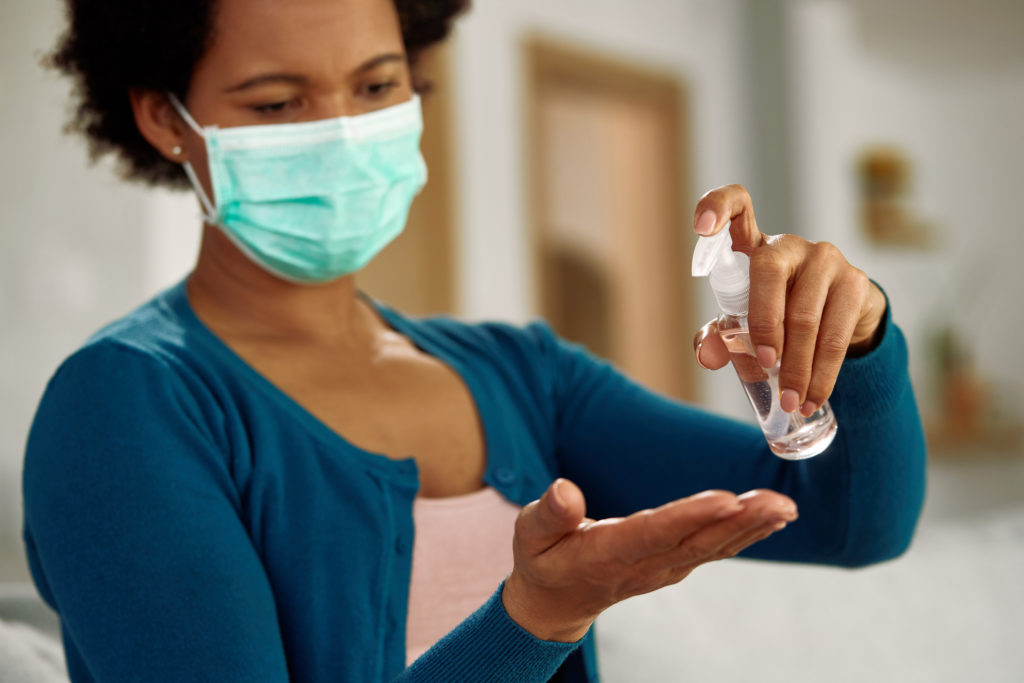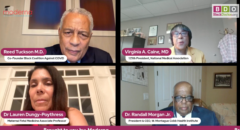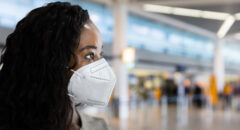
The United States is now experiencing a fourth wave of COVID-19, with rapidly rising infections. The surge in new daily cases is driven by the Delta variant, which makes up 83% of sequenced samples in the U.S. and which is estimated to be twice as transmissible as the original strain. One of the reasons that Delta spreads more easily is that a person infected with this variant has a viral load 1,000 times higher than someone infected with the original version of SARS-CoV-2.
Hospitalizations and deaths are also rising, though more slowly than cases, reflecting the fact that 49% of all Americans are fully vaccinated. Even with Delta, COVID-19 vaccines are effective at preventing severe illness and death. Anthony Fauci, President Joe Biden’s chief medical advisor on COVID-19, estimates that over 99% of people dying in the U.S. from the illness are unvaccinated. With growing infections, some vaccinated people are getting breakthrough infections because no vaccines are 100% effective.
“The vaccine does not necessarily prevent you from getting COVID. It prevents you from being hospitalized or dying from it,” Dr. Kris Bungay, a Manhattan primary care physician. “That is why we all still have to be careful.”
“It was not common in the clinical trials for patients to be symptomatic after getting vaccinated,” Bungay added.
Moderna’s and Pfizer’s two-dose vaccines are 94% and 95% effective, respectively, at preventing symptomatic coronavirus infections after two doses, according to the CDC. The single-dose J&J vaccine only provides 66% protection, It should be noted that studies show that fully vaccinated people can spread the virus to others, even if they do contract COVID-19.
Someone who is asymptomatic has the infection but no symptoms and will not develop them later. Someone who is pre-symptomatic has the infection but doesn’t have any symptoms yet.
Both groups can spread the infection.
Fully vaccinated people can and have gotten COVID-19. However, these cases are overwhelmingly asymptomatic or mild. These types of cases are known as “breakthrough infections,” but experts say they are uncommon. Fully vaccinated people who become seriously ill, hospitalized or die are even rarer, The New York Times reports. But this also means that vaccinated people may spread COVID-19 to others.
In summation, the spread of COVID is not limited to the unvaccinated. All data from CDC and other sources state it can result in setting up an immunity system in your body to fight the virus, reducing your severity of illness if you contract the virus, it does not stop its transmission.
Vaccine Effectiveness (from CDC website)
- All COVID-19 vaccines currently available in the United States are effective at preventing COVID-19 as seen in clinical trial settings.
- Research provides growing evidence that mRNA COVID-19 vaccines offer similar protection in real world conditions.
- COVID-19 vaccination is an important tool to help stop the COVID-19 pandemic.
- COVID-19 vaccination helps protect people from getting sick or severely ill with COVID-19 and might also help protect people around them.
- To receive the most protection, people should receive all recommended doses of a COVID-19 vaccine.
- Some people who are fully vaccinated against COVID-19 will still get sick because no vaccine is 100% effective. Experts continue to monitor and evaluate how often this occurs, how severe their illness is, and how likely a vaccinated person is to spread COVID-19 to others.
- CDC recommends you get a COVID-19 vaccine as soon as one is available to you.








